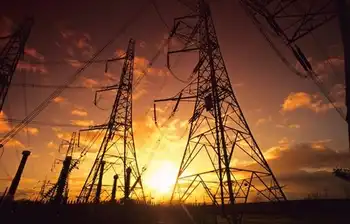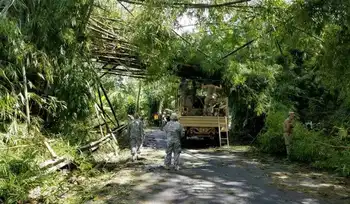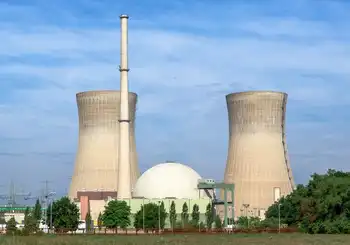Russia seeks clarification on liability law
NEW DELHI, INDIA - Russia has sought clarifications from India regarding its nuclear civil liability legislation, which it asked India to bring it in line with global conventions before it embarks on building 16 nuclear reactors in India over the next few years.
This directive came as Russian President Dmitry Medvedev arrived on a two-day state visit.
"We have not received yet an explanation from the Indian side as to how it will work," said Alexander Kadakin, the Russian ambassador to India. "So far, we are working on the basis of agreements that we had signed before this bill was passed.
"So far, we do not think it will be an impediment. But we do think India will adhere to the international agreements it has signed. International agreements take supremacy over domestic laws."
The Russian ambassador underscored the point that the civil nuclear liability legislation would not pose "a hurdle to expanding civil nuclear cooperation" and reiterated that Russia was looking to build 14 to 16 nuclear reactors in India.
The Russian side has some questions regarding the applicability of the Indian nuclear liability law on Kudankulam 3 and 4, the two nuclear reactors it would build at Kudankulam in Tamil Nadu.
According to Ajay Bisaria, the joint secretary Russia of India's External Affairs Ministry, India hoped to reach a solution on the issue.
"We see the current conversation on the Kudankulam 3 and 4 units as an ongoing process," he said. "This is purely a technical discussion between both sides, which includes the whole range of things, including the cost and liability. And we hope will reach a resolution to all these issues."
At present, India has 20 nuclear power plants in operation, generating 4,560 MW, while four others are under construction and are expected to generate an additional 2,720 MW. India's nuclear power industry is undergoing rapid expansion, with plans to increase nuclear power output to 64,000 MW by 2032.
The four under construction are one each at Kaiga in Karnataka and Kalpakkam in Tamil Nadu, and two at Kudankulam in Tamil Nadu.
India has signed the Convention on Supplementary Compensation for Nuclear Damage CSC in October to allay the concerns of foreign suppliers, including the U.S.
India's nuclear liability legislation caps the operator's liability at $331 million and gives the operator the right to seek damages from suppliers if there is an accident.
The convention will give India access to a global fund for compensation in case of a nuclear accident, with trans-national implications. The CSC, after it enters into force, would establish a uniform global legal regime for compensation to victims in the event of a nuclear accident.
The convention also sets parameters on a nuclear operator's financial liability sets time limits governing possible legal action requires that nuclear operators maintain insurance or other financial security measures and provides for a single competent court to hear claims.
Just recently, India and France signed a multi-billion dollar agreement comprising five atomic pacts and ushered in a new phase in civil nuclear cooperation. France plans to build six reactors in India to produce 10,000 MW of electricity during the next few years.
The two countries signed five nuclear-related pacts, including an early works agreement and a general framework agreement between French nuclear giant Areva S.A. and the Nuclear Power Corporation of India Limited NPCIL for building a pair of third-generation advanced European pressurized reactors EPRs.
But French President Nikolas Sarkozy was understood to have also voiced concerns over some aspects of the civil nuclear liability law. Prime Minister Manmohan Singh reportedly allayed his concerns, but some issues relating to the liability of suppliers are yet to be resolved.
Russian Deputy Prime Minister Sergei Ivanov made a strong pitch for enhancing the economic content of the time-tested India-Russia partnership and asked businesses on both sides to step up their efforts to achieve $20 billion in trade by 2015.
Ivanov felt that nuclear energy is becoming an increasing important area of bilateral cooperation and announced that Russia will be building two more reactors at Kudankulam in Tamil Nadu.
Medvedev made his stand clear as he said he "hopes to solve problems" with the nuclear liability law. But he was unwilling to make an issue out of it and remarked: "We seek to solve the relevant problems in a constructive way through negotiations."
Russia wants Indian law to conform to the 1963 Vienna Convention, which it does not at present.
Related News

How IRENA Study Will Resolve Philippines’ Electricity Crisis
MANILLA - The reason why IRENA made its study in the Philippines is because of the country’s demand for electricity is on a steady rise while the generating capacity lags behind. To provide households the electricity, the government is constrained to implement rolling blackouts in some regions. By 2030, the demand for electricity is projected to reach 30 million kilowatts as compared to 17 million kilowatts which is its current generating capacity.
One of the country’s biggest conglomerations, San Miguel Corporation is accountable for almost 20% of power output. It has power plants that has a 900,000-kW generation capacity. Another corporation…




